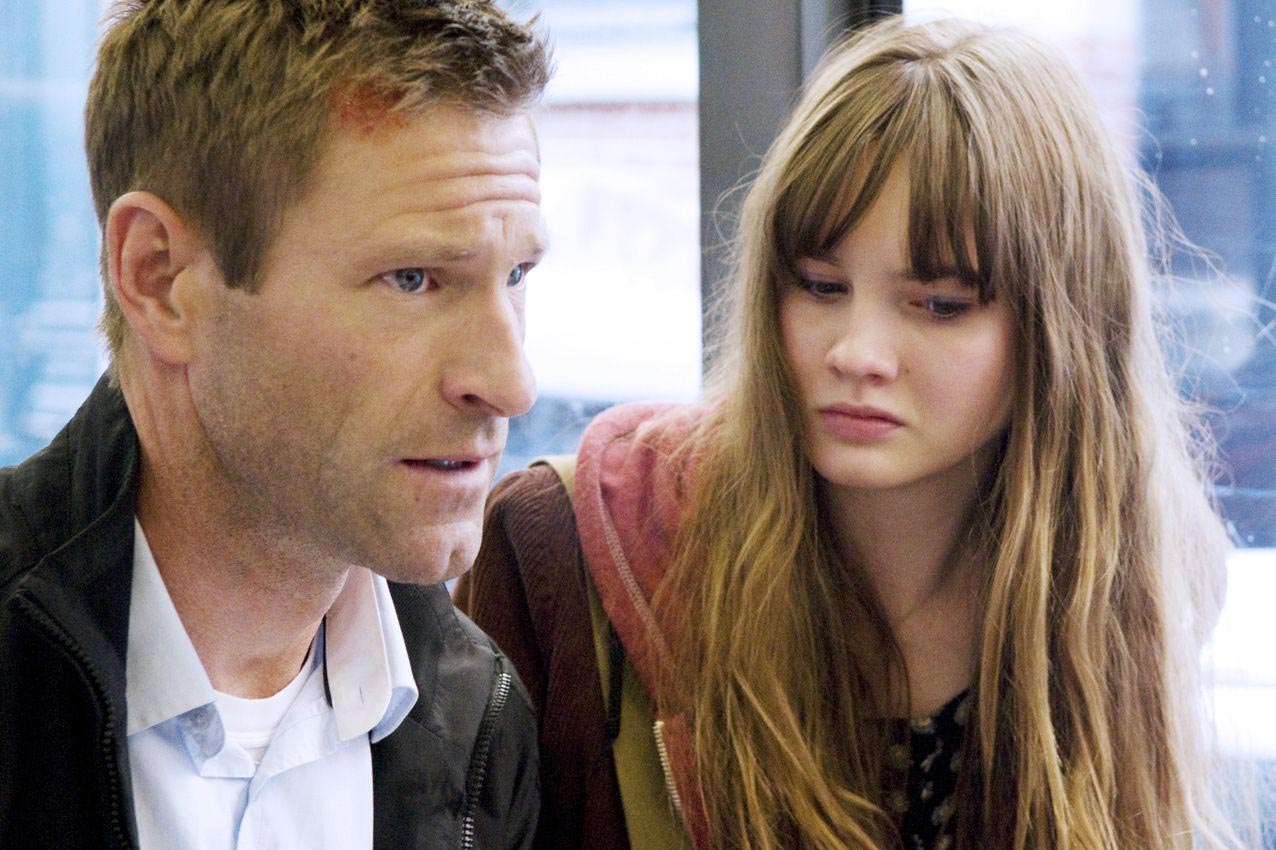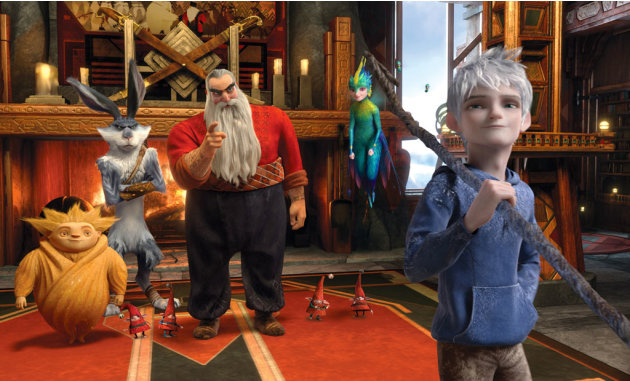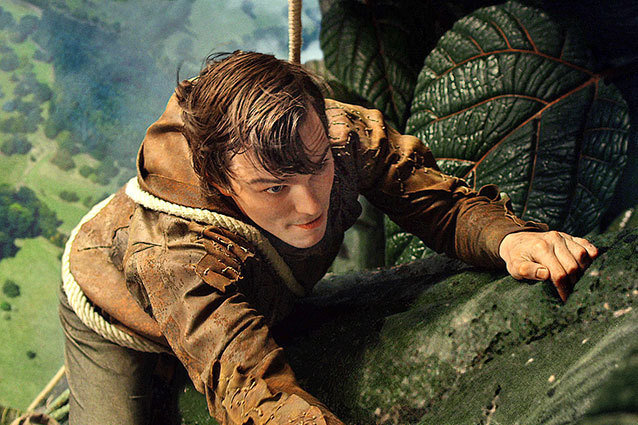Jack the
Giant Slayer (PG) 114 mins **
Identity
Thief (15) 111 mins *
Reality (15)
116 mins *
The cinema right now is all filler and footnotes.
One week, we’re being told of Hansel and Gretel’s later life; the next, where
exactly the Wizard of Oz hailed from; now, with Jack the Giant Slayer,
we finally learn the provenance of those magic beans. Bryan Singer’s film is
the timeless fairytale retold under the influence of George Lucas and Dan
Brown. Who knew the beans were sourced by an ancient cabal of monks? Or that
giants can be slain using a fiery crown fashioned from their own hardened
hearts? And who, I’d ask, really needed to know?
It’s taken four writers to sling some action beats
and a half-hearted love triangle around this gibberish. Jack (Nicholas Hoult)
is still a poor tenant farmer, only here he takes a horse rather than a cow to
market: it’s sexier, presumably. En route, he catches the eye of Princess
Isabelle (Eleanor Tomlinson), poised to be married off when she inadvertently
causes Jack’s beanstalk to sprout; the pair will be accompanied on their
journey skywards by leading swordsman Elmont, raffishly played by Ewan
McGregor, the erstwhile Obi-Wan effectively recast as Han Solo.
Singer’s chief contribution is to clear some small
space for his actors in a world that feels 80-90% pixelated. The likable young
leads are bolstered by doughty old pros (Ian McShane, Stanley Tucci, Eddie
Marsan) who show up, hit their marks before the green screens, and react as
directed, before pocketing appreciable cheques. Set against Clash of the Titans or Alice in Wonderland, this workmanlike Jack slays time painlessly enough, and
its armies of snot-nosed, farting 3D giants, perhaps influenced by Roald Dahl’s
BFG, may yet distract younger viewers.
Nevertheless, this remains a tale of the expected.
The darkness and eccentricity that make the most compelling children’s fables
have again been purged to secure mass-market acceptance: you see it in the
pronounced editorial flinch when one of Jack’s foes shapes to bite off some
unfortunate’s head. Whatever jeopardy there is here – the storm-lashed ascent
of the beanstalk, Elmont clinging by his fingertips above a waterfall – is
virtual and, worse, temporary. Stuff happens in these films; a moment later, it
gets resolved and something else comes along.
Jack’s narrative is persistently reframed, first as
animation, then bedtime story and finally as a London tour guide’s anecdote: a
baffling postmodern muddle suggestive less of cleverness than unresolved script
conferences. Just as the Sam Raimi who made the Evil Deads went AWOL during Ozthe Great and Powerful, so the Singer behind The Usual Suspects’ sharp and stylish chicanery has similarly been
obscured. The beans he’s taken to hawking are easily consumed, but they’ll pass
straight through you, no more magical or distinctive than any supermarket’s
own-brand.
Identity
Thief is Hollywood’s attempt to garner laughs from the
subject of credit-card fraud. Jason Bateman plays Sandy Patterson, a corporate
flunky whose latest promotion is threatened after he falls victim to a
Floridian grifter. Rather than have Sandy ringing up his bank to resolve the
situation, Seth Gordon’s film chances it’d be funnier if he personally pursued
the culprit. She’s Diana, played by Melissa McCarthy: you may remember her as
the bridesmaid in Bridesmaids who
came to defecate in a sink.
Now, it seems, there’s no holding McCarthy back. A
gaudily accumulating hybrid of Kathy Bates and Katie Price, Diana is a
projectile vomiting, throat-punching nightmare – proof, somewhat uncalled for,
that a female comedian can be just as crude as her male contemporaries. Yet
even as Diana is observed pleasuring herself with a champagne bottle, we’re
struck by another queasy sensation: that the character is intended as
redeemable, and that she and Sandy will soon become better people for this
experience.
Seventy years ago, Hollywood’s smarter minds might
have spun this scenario – uptight male undone by impulsive female – into
screwball gold: a film about our infinite capacity to deceive and be deceived.
Gordon and his screenwriter Craig Mazin instead string it out for two hours,
appeasing the audience with a car chase, fist fight or reassuring hug every
fifteen minutes. The formula has thus far fleeced US cinemagoers to the tune of
over $100 million; British viewers are urged to be on their guard.
The arthouse offers scant shelter. Reality, a
mirthless satire about a fame-hungry Neapolitan fishmonger, proves a woeful
disappointment after director Matteo Garrone’s superb Gomorrah. That film used non-professionals to give its depiction of
life under the Camorra a chilling authenticity; here, they’re wheeled on to
damn ordinary folk as plump hayseeds and grasping grotesques. One co-producer
is RAI Cinema, whose TV arm cradles the Italian Big Brother; this gets Garrone access to the show’s sets and staff,
while compromising him fatally elsewhere. Reality
wants to illustrate the cult of personality that holds sway in Berlusconi-land;
what it finally demonstrates is the depressing extent to which even its
sharper-minded observers might be corruptible.
Jack the Giant Slayer and Identity Thief are in cinemas nationwide; Reality opens in selected cinemas from today.














